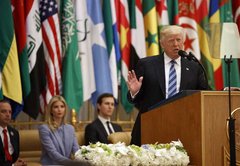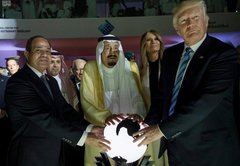Establish a commission on radical Islam
Donald Trump
“One of my first acts as president will be to establish a commission on radical Islam which will include reformist voices in the Muslim community who will hopefully work with us."
Trump-O-Meter

Promise Broken



